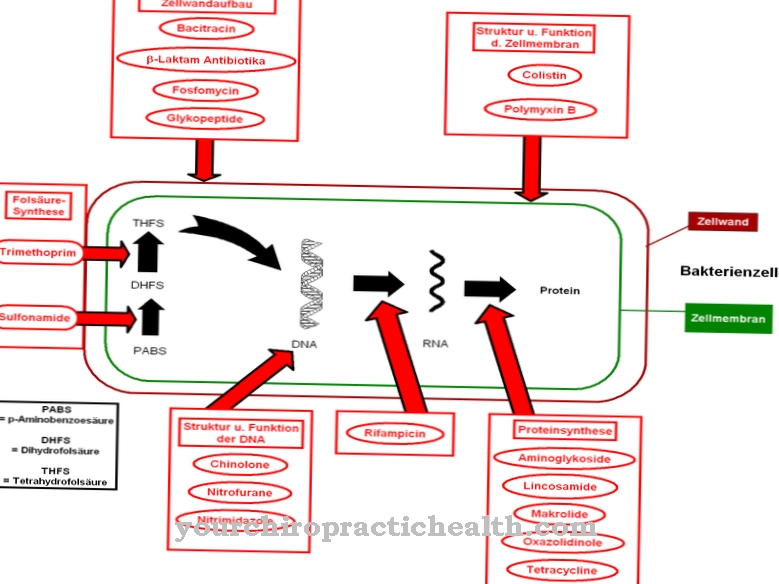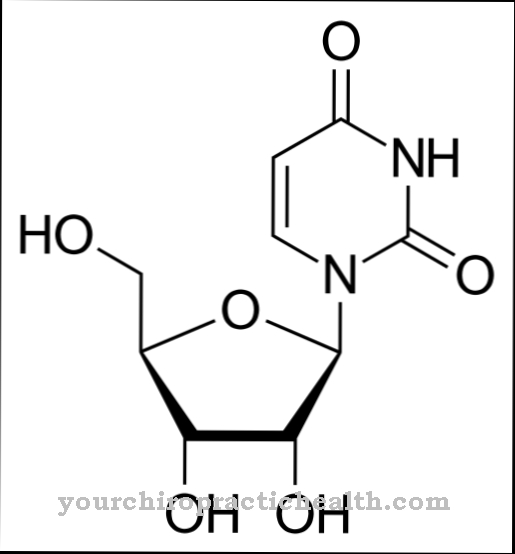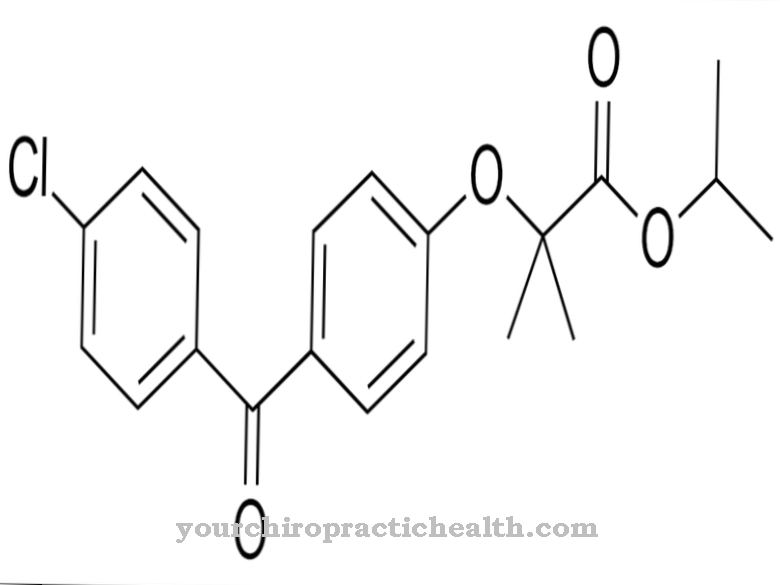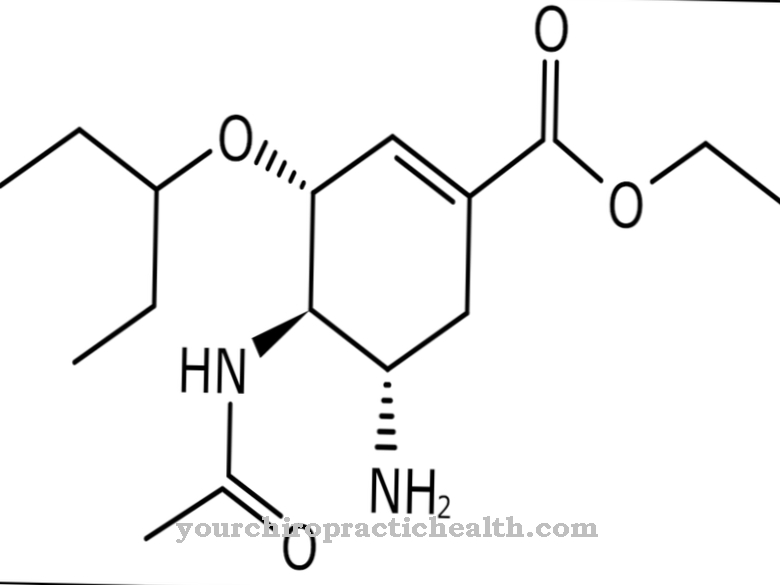Ketanserin refers to a substance that has wound healing and antihypertensive properties. The active ingredient is a serotonin antagonist and acts on different receptors in the human brain. In the Federal Republic of Germany, however, ketanserin is not approved as a drug for these purposes and is only used clinically in exceptional cases.
What is ketanserin?

Ketanserin is a special derivative that has been examined in many studies and tests in order to obtain a detailed pharmacological analysis. Ketanserin is a very effective serotonin antagonist, which is part of numerous preparations.
The drug ketanserin has many different modes of action that directly affect the vegetative and central nervous system. The effect of ketanserin on the heart function, for example, is very complex and ranges from the effect on cardiac muscle activities such as contraction and relaxation to the effect on the muscles of the blood vessels.
The vasoconstricting property of ketanserin continues to take place in the lungs and kidneys. The vasodilating property predominates in the musculature of the bone structure. Serotonin causes a phasic change in blood pressure in the human bloodstream. At first there is a drop in blood pressure, but after a few seconds it rises again and persistent high blood pressure develops. As an antagonist, ketanserin can counteract this very well and lowers blood pressure to a normal level in the long term.
Pharmacological effect
Ketanserin is a selective and competitive serotonin antagonist. The active substance inhibits local symptoms caused by serotonin, such as, for example, the narrowing of vessels, permeability, the aggregation of blood platelets and the blocking and release of all factors relating to growth in the human body.
This also ensures that the blood is supplied with oxygen and improves circulation in the wound. The so-called endothelial cells and fibroblasts multiply considerably under the stimulating influence of ketanserin. This leads to improved wound healing, which in turn prevents infections.
Furthermore, the administration of this drug leads to a blockage of histamine receptors and the blood vessels are dilated. The serotonin antagonist ketanserin is a substance that acts directly on the receptors in the human brain. It is able to activate and influence tissue hormones and neurotransmitters such as serotonin.
Ketanserin also works selectively and differentiates between around 20 different receptors in the brain. It is also used in the treatment of migraines, depression or anxiety, also in so-called irritable bowel syndrome or as an appetite suppressant. There were different preparations with different trade names that are no longer available in all of Europe.
Medical application & use
Ketanserin lowers blood pressure, so it mainly works as a so-called antihypertensive. However, there is no appropriate approval for this drug in Germany. In other countries too, ketanserin is subject to considerable restrictions in its use.
In practice, the substance is usually only used as a reserve for particularly critical blood pressure values. It is therefore often used for operations or poisoning during pregnancy. In Europe, ketanserin is only available in the Netherlands under the name Ketesin. All other preparations, which were initially sold in various European countries, are no longer on the market.
However, ketanserin is used in pharmacology research. Here it is used to analyze the different mechanisms of action of pharmaceuticals. In Switzerland, the drug is used to treat wounds in animals and is available as a gel.
You can find your medication here
➔ Medicines to calm down and strengthen nervesRisks & side effects
Ketanserin has some risks and side effects. Sensitivity reactions and allergic symptoms may occur and must not be used in hypokalaemia. There is also the possibility of side effects such as drowsiness, headache, and fatigue. Often there is also weight gain and dry mouth. Particularly sensitive patients often experience attacks of dizziness due to significant fluctuations in blood pressure during treatment with ketanserin.
Some cases of irregular heartbeat and tachycardia (rapid heartbeat) have occurred in medical studies. Ketanserin can therefore be contraindicated in diseases such as atrioventricular block, cardiac arrhythmias, bradycardia and tachycardia, various cardiovascular syndromes and ventricular fibrillation.













.jpg)

.jpg)
.jpg)











.jpg)